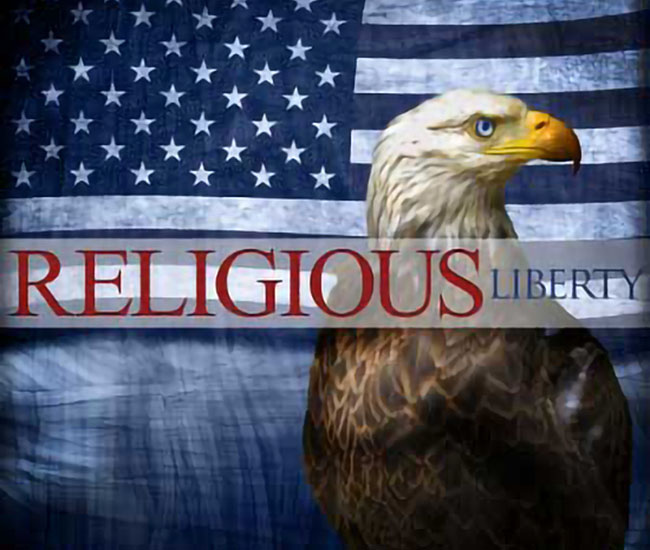Religious freedom is one of the basic freedoms of the human person because without religious freedom, the freedom of conscience, all other freedoms are without foundation.
Freedom of religion is protected by the First Amendment of the U.S. Constitution, which prohibits laws establishing a national religion or impeding the free exercise of religion for its citizens.
The Founding Fathers recognized that all people have inalienable rights that flow from the Creator. These rights are grounded in the unique, Judeo-Christian concept of man’s inherent dignity as a creature made in God’s image, endowed with reason, free will, and an eternal soul.

The annual Fortnight for Freedom will consist of national and local efforts to educate Americans on challenges to religious liberty both at home and abroad.
Freedom of religion is a fundamental human right that protects the conscience of all people. It allows us to think, express and act upon what we deeply believe. But around the world, and in the United States, this freedom is eroding. Churches, religious organizations and individuals face increasing restrictions as they participate in the public square, express their beliefs or serve in society.
“A government that doesn’t acknowledge limits on its own power to regulate religious institutions is probably going to come after other institutions as well,” said Professor Rick Garnett of the Notre Dame Law School.
“When religious freedom goes away, and there is no transcendent authority, then the law is the only norm, and the people in power now are always the only power,” says Professor Helen Alvare of George Mason University Law School.
“The United States is the greatest country in the history of the world precisely because of the exceptional character of its relationship to faith which permeates every dimension of its evolution,” says Eugene Rivers II, an activist and Pentecostal pastor.

